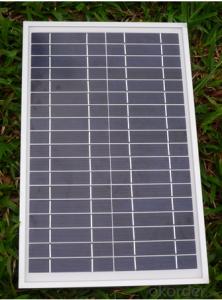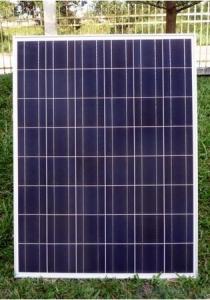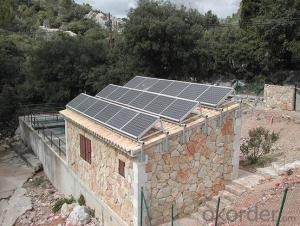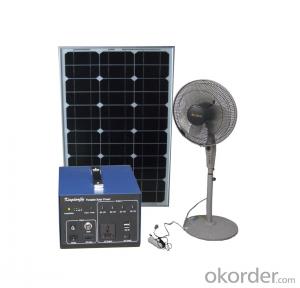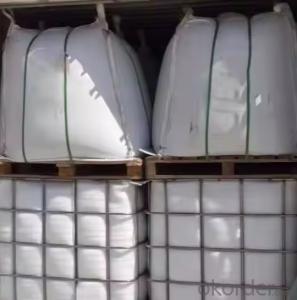4000W Best Hybrid Solar Inverter 4000W Solar Home System
- Loading Port:
- Tianjin
- Payment Terms:
- TT OR LC
- Min Order Qty:
- 100 watt
- Supply Capability:
- 200 watt/month
OKorder Service Pledge
OKorder Financial Service
You Might Also Like
Item specifice
4000W Best Hybrid Solar Inverter 4000W Solar Home System
Product description
A photovoltaic system, also solar PV power system, or PV system, is a power system designed to supply usable solar power by means of photovoltaics. It consists of an arrangement of several components, includingsolar panels to absorb and convert sunlight into electricity, a solar inverter to change the electric current from DC to AC, as well as mounting, cabling and other electrical accessories to set up a working system. It may also use a solar tracking system to improve the system's overall performance and include an integrated battery solution, as prices for storage devices are expected to decline.
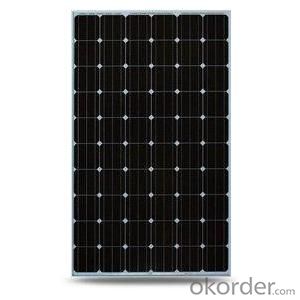
Feature of product:
Pure sine wave solar inverter
. Selectable input voltage range for home appliances and personal computers
. Selectable charging current based on applications
. Configurable AC/Solar input priority via LCD setting
. Compatible to mains voltage or generator power
. Parallel operation with up to 4 units only available for PV200 4KVA/5KVA
. Auto restart while AC is recovering
. Overload and short circuit protection
. Smart battery charger design for optimized battery performance
. Cold start function
Parameter
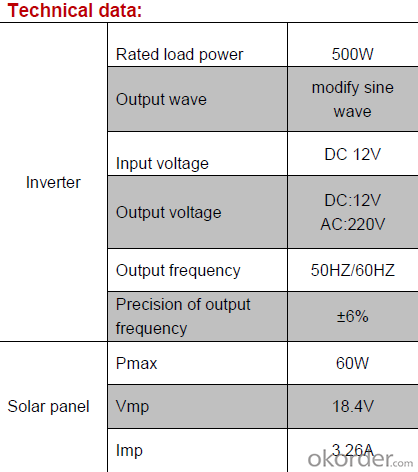
Packaging
Material in stock can be produced (procedure 5-20days) right away after pre-payment confirmation. COSCO Mearsk MSCship to worldwide for safe shipping, don't worry about package damage or loss. It takes about 15-40 days to worldwide, Please note us your contact details include your phone number for easy contacting from shipping company officer.
- Q:How does the efficiency of solar panels degrade over time?
- The efficiency of solar panels degrades over time due to various factors. One of the primary reasons is the gradual wear and tear of the panel's components. Over the course of several years, exposure to sunlight, weather conditions, and temperature fluctuations can cause the deterioration of materials such as the solar cells, electrical connections, and protective coatings. Another factor contributing to the degradation of solar panel efficiency is the accumulation of dirt, dust, and debris on the panel's surface. As these particles accumulate, they create a barrier between the sunlight and the solar cells, reducing the amount of light that can be converted into electricity. Additionally, the performance of solar panels can be affected by the natural aging process of the materials used in their construction. This can result in a decrease in the panel's ability to absorb sunlight and convert it into electricity efficiently. Furthermore, the efficiency of solar panels can be impacted by potential manufacturing defects or poor installation practices. These issues may not become apparent immediately but can lead to a gradual decline in performance over time. It is worth mentioning that the rate at which solar panel efficiency degrades can vary depending on the quality of the panels, maintenance practices, and environmental conditions. Generally, most solar panels experience a modest degradation rate of around 0.5-1% per year, meaning that after 25-30 years, the efficiency may decrease by approximately 20-30%. To mitigate the degradation of solar panel efficiency, regular maintenance and cleaning are recommended. This includes periodic inspection for any signs of damage, cleaning the surface to remove dirt and debris, and ensuring proper wiring and connections. Additionally, advancements in solar panel technology and manufacturing processes are continuously being made to improve their longevity and overall performance.
- Q:Can solar energy systems be used in powering veterinary clinics or animal shelters?
- Certainly, solar energy systems have the capability to power veterinary clinics and animal shelters with great efficiency. These systems, such as solar panels, have the ability to capture the energy from sunlight and convert it into usable electricity. This electricity can then be utilized to operate a wide range of electrical appliances and devices that are essential in these establishments. By installing solar panels either on the roof or in an open area close to the veterinary clinic or animal shelter, these facilities can minimize their reliance on conventional electricity sources and instead take advantage of the clean and renewable solar energy. This sustainable power can be utilized to operate crucial equipment like lights, heating and cooling systems, medical devices, refrigerators for vaccines and medications, computers, and other necessary devices. Moreover, the utilization of solar energy systems can lead to long-term cost savings for these establishments. Veterinary clinics and animal shelters typically consume a significant amount of electricity due to the nature of their operations, which involve maintaining appropriate temperature and lighting conditions, operating medical equipment, and ensuring a comfortable environment for the animals and staff. By harnessing solar power, these establishments can considerably reduce their electricity expenses, enabling them to allocate more resources towards the care and welfare of animals. Furthermore, the adoption of solar energy systems in veterinary clinics and animal shelters aligns perfectly with their commitment to environmental sustainability. By decreasing their dependency on fossil fuels and embracing the use of clean and renewable solar energy, these establishments can actively contribute to the reduction of carbon emissions and the minimization of their ecological impact. In conclusion, solar energy systems serve as a highly effective solution for powering veterinary clinics and animal shelters. They provide a reliable and sustainable source of electricity, reduce operational costs, and display a strong dedication to environmental responsibility.
- Q:Can solar energy systems be installed in areas with heavy snowfall?
- Yes, solar energy systems can be installed in areas with heavy snowfall. However, it is important to consider the impact of snow on the system's performance and take necessary precautions during installation. Snow can temporarily reduce the amount of sunlight reaching the solar panels, which in turn reduces their energy production. However, the panels are designed to have a tilt and smooth surface, allowing snow to slide off easily. Additionally, advancements in technology have led to the development of snow-resistant solar panels that are more effective at converting sunlight into electricity even in snowy conditions. It is also worth noting that solar panels are often mounted at an angle to maximize their exposure to the sun, which helps to minimize snow accumulation. Overall, while heavy snowfall may impact the efficiency of solar energy systems, they can still be successfully installed and can contribute to renewable energy generation in areas with such climatic conditions.
- Q:How does the cost of solar panels vary based on the manufacturer?
- The cost of solar panels can vary based on the manufacturer due to several factors. Different manufacturers may use different technologies, materials, and production methods, which can affect the overall cost of the panels. Additionally, brand reputation and market demand can also influence the pricing. Some manufacturers may offer premium panels with higher efficiency and durability, resulting in a higher cost, while others may focus on providing more affordable options. Ultimately, it is important to consider factors like quality, warranty, and long-term performance when comparing prices from different manufacturers.
- Q:Are there any risks of electrical fires with solar energy systems?
- Yes, there are potential risks of electrical fires associated with solar energy systems. While solar energy systems are generally considered safe, there are a few factors that can increase the risk of electrical fires. One of the main risks is improper installation or maintenance of the system. If the wiring is not done correctly or if there are issues with the electrical connections, it can lead to overheating and potential fire hazards. Additionally, if the solar panels are not properly grounded or if there are faults in the system, it can also increase the risk of electrical fires. It is crucial to hire qualified professionals for installation and regular maintenance of solar energy systems to minimize these risks. Fire safety precautions such as using appropriate wiring, installing proper fire detection and suppression systems, and ensuring adequate ventilation around the solar panels can further reduce the risk of electrical fires. Overall, while solar energy systems are generally safe, it is important to be aware of these risks and take necessary precautions to mitigate them.
- Q:How do solar energy systems impact energy resilience during natural disasters?
- Solar energy systems can greatly enhance energy resilience during natural disasters. Unlike traditional power grids that rely on fossil fuels, solar energy systems generate electricity from sunlight, making them more reliable and less vulnerable to disruptions caused by extreme weather events. During power outages, solar panels can continue to produce electricity, providing a reliable source of energy for critical infrastructure, emergency services, and households. Additionally, solar energy systems can be combined with energy storage solutions such as batteries, allowing excess energy to be stored and used when the sun is not shining, further increasing energy resilience. Overall, solar energy systems play a crucial role in ensuring a more resilient and sustainable energy infrastructure during natural disasters.
- Q:What is the difference between on-grid and off-grid solar energy systems?
- On-grid solar energy systems are connected to the main electrical grid, allowing for the excess energy produced by the solar panels to be fed back into the grid for credits or compensation. This means that on-grid systems rely on the grid for power when sunlight is unavailable. On the other hand, off-grid solar energy systems are standalone systems that are not connected to the main electrical grid. This type of system typically relies on battery storage to store excess energy produced during the day, which can then be used during the night or when sunlight is not available. In summary, the main difference between on-grid and off-grid solar energy systems lies in their connection to the electrical grid and the reliance on external sources of power.
- Q:How much space is needed for a solar energy system installation?
- The space required for a solar energy system installation depends on various factors such as the system size, type of solar panels used, and the available sunlight. On average, a 1 kW solar panel system requires around 100 square feet of space. Therefore, for larger systems, more space will be needed. Additionally, the orientation and tilt of the panels can also impact the space requirements. It is recommended to consult with a solar energy professional who can assess your specific needs and provide accurate information regarding the space needed for a solar energy system installation.
- Q:Can solar energy systems be used for powering electric bikes or scooters?
- Yes, solar energy systems can be used to power electric bikes or scooters. Solar panels can be used to generate electricity, which can then be stored in batteries and used to charge the batteries of electric bikes or scooters. This allows for a clean and sustainable way to power these vehicles.
- Q:Can solar energy systems be used for powering streetlights or outdoor lighting?
- Yes, solar energy systems can be used to power streetlights and outdoor lighting. Solar-powered streetlights and outdoor lighting systems are becoming increasingly common and offer a sustainable and cost-effective alternative to traditional electricity-powered lighting. These systems harness energy from the sun during the day and store it in batteries, which then power the lights during the night. Solar energy systems for streetlights and outdoor lighting help reduce carbon emissions and dependence on the grid while providing reliable illumination.
1. Manufacturer Overview |
|
|---|---|
| Location | |
| Year Established | |
| Annual Output Value | |
| Main Markets | |
| Company Certifications | |
2. Manufacturer Certificates |
|
|---|---|
| a) Certification Name | |
| Range | |
| Reference | |
| Validity Period | |
3. Manufacturer Capability |
|
|---|---|
| a)Trade Capacity | |
| Nearest Port | |
| Export Percentage | |
| No.of Employees in Trade Department | |
| Language Spoken: | |
| b)Factory Information | |
| Factory Size: | |
| No. of Production Lines | |
| Contract Manufacturing | |
| Product Price Range | |
Send your message to us
4000W Best Hybrid Solar Inverter 4000W Solar Home System
- Loading Port:
- Tianjin
- Payment Terms:
- TT OR LC
- Min Order Qty:
- 100 watt
- Supply Capability:
- 200 watt/month
OKorder Service Pledge
OKorder Financial Service
Similar products
New products
Hot products
Hot Searches
Related keywords
